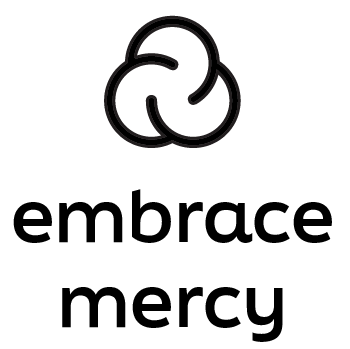A gospel that is good news for orphans.
So often our young adult orphans don’t measure up to the “yardsticks” applied to them:
· No family ties in a society organized around extended family
· Poor education in an impossible job market
· Roma in a nation which despises its ethnic minorities
· Socially awkward in a culture that prioritizes proper comportment
· And worst of all, never ever holy enough for the religious community
To somebody from the more secular west, Romania is a very religious country. Religion is taught in government schools. Less than one percent of Romanians identify as non-religious. Religious authority is taken very seriously. So our young people are no strangers to religion and faith.
On the surface it appears diverse: Orthodox (most ethnic Romanians), Catholic (ethnic Hungarians—half of the population in our region of Romania), and a significant number of protestants who are evangelical, charismatic, or reformed (which each take specific Romanian forms). But no matter the brand, one thing is pretty common: our youth can never measure up.
A universal pitfall of religion is certainly true in Romania – the “gospel” that gets preached is predominantly management of behavior and belief. If you act this way, you are welcome to participate fully in our community. If you believe this important doctrine, we can include you. There are standards to preserve and communal reputations to protect.
We religious people get really good at cloaking it all holy-sounding language.
“If we let the pregnant teenager get baptized, all the other girls will think it’s okay.”
“If we allow everyone to take communion, the non-smokers will think smoking doesn’t matter.”
“If we include those earning a living through prostitution, we won’t be standing up for purity.”
Some version of all this has been around since Jesus’s time, and undoubtedly before that. We faith-full people lose our way and appoint ourselves guardians of traditions we mistake for the gospel. We act as if somehow there might not be enough grace to go around.
What would happen if we believed the radical idea that we don’t actually have to guard anything? That God’s wild grace is wide enough, deep enough, infinite enough, pure enough, good enough, transformative enough to be life-giving in all these situations? All these people? Even us? Even our own struggles with self-righteousness. Even our faithlessness. Even our fears that there’s not enough grace to go around. Or that God needs our help to manage it.
What if we trust that God is enfolding – completely – the addicted, the pregnant teenagers, the prostitutes; yes, even the self-righteous (our own much bigger sin)? As God invites us to be enfolded? What if we trust that love is at the heart of all God’s ways in the world? What if we have the faith to believe that everyone is welcome in the kingdom of God. EVERYONE, especially the unlikely suspects. Not after we get our sh** together. RIGHT NOW.
For one thing, we’d have to throw out the yardstick.
Too often the “gospel” that our youth have heard is not good news at all: “If you’ve been having sex since you were a little kid, you yourself are impure.” “If you smoke, you don’t honor God.” “If you prostitute yourself, you pollute others around you.” “If you steal or lie or cheat or swear you’re a bad person.” These things actually get said out loud, but the nonverbal messages are even more powerful.
Most of our kids will never, ever measure up to this kind of a yardstick. And if we religious insiders don’t acknowledge our self-righteousness in this, we’re not really following the Jesus of the gospels. (Optional homework assignment that has challenged and shaped us: reread one of the gospels with the lens of “Who does Jesus hang out with?” “Who does Jesus get mad at?” "Who gets mad at Jesus?" Why?)
And so at Embrace Mercy– a faith based organization to the core – we are on a long, humbling journey of throwing out the yardstick. We’ve sided with grace. We continually ask the question: “Is it ‘good news’ to the poor?” “Is it ‘good news’ for our kids?” Because if it’s not, we know it’s not really the gospel. It’s not such a hard question. But it makes all the difference.
Without this question we’re prone to assume we’re the keeper of the “table.” We pride ourselves in stooping to offer the outsiders –the addicts, the awkward, the kids who swear and lie and steal – a seat at the banquet. “Here, let me pull up a stool.” “Here, if you can behave yourself I’ll look for a folding chair that we can squeeze in.” “Here, if you keep quiet you can stay for the first course.” “If you’re really really good at fitting in, you can make it all the way to dessert.
In reality, it’s our orphan youth who are ALREADY at the table (“Blessed are the poor in spirit, for theirs is the kindgom of heaven” in the gospel of Matthew and “The Spirit of the Lord has anointed me to proclaim good news to the poor” in the gospel of Luke). It’s WE – the social and religious insiders – who are invited to join the party already in progress. WE don’t offer THEM the good news of salvation. THEY offer it to US, sometimes inarticulately but always compellingly. (Optional homework assignment #2: read the gospels through the lens of how Jesus related to, and invited, powerful and privileged people like us.)
And so we at Embrace Mercy – following the lead of Jesus – are committed to practicing Radical Welcome.
Our youth are welcome in the Kingdom of God. PERIOD. They are welcome with us, ALWAYS , as we already have been graciously welcomed by them and by God.










